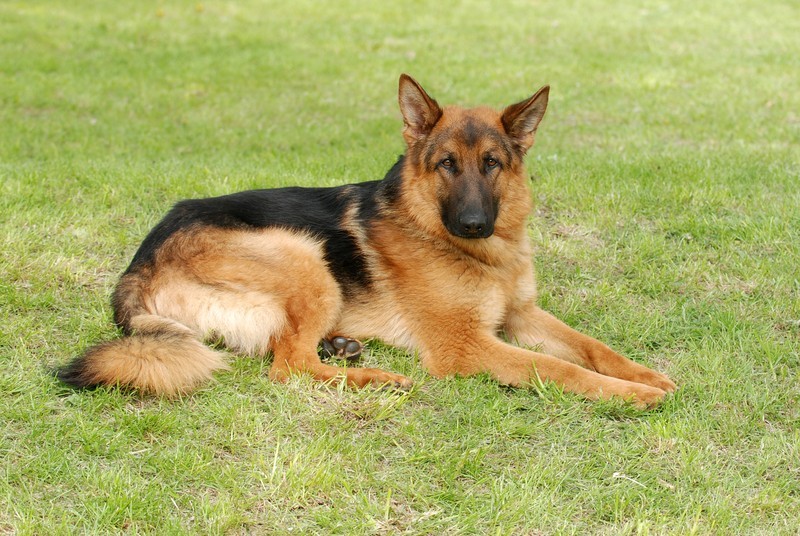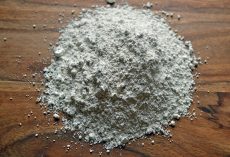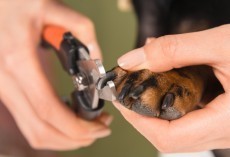It's important to know that a German Shepherd can have issues that are not as common in other breeds, so read and learn all about the diseases below so you can be prepared if your pup ever gets ill. You can keep them healthy by understanding the diseases and keeping close tabs on their everyday health state.
1. Perianal fistula is a disorder most commonly seen in German Shepherds. The disease is characterized by draining openings on the skin around the anus. Affected dogs may strain to defecate, have diarrhea or bloody stool and lick at the anal area frequently. Obviously secondary infection in this area is a great risk and because of the many nerves that supply the area, the ailment is painful and debilitating.
2. Megaesophagus (from the Greek Mega meaning large) is a condition in which the esophagus (tube that carries food to the stomach when we swallow) becomes limp and is not able to normally pass the food on its way to be digested. The type of megaesophagus that we see in German Shepherds is a congenital problem that a recent study found to correlate to chromosome 12. There is no “cure” for this problem.
3. Most people by now know about Hip Dysplasia. The hip joint is a ball and socket joint and hip dysplasia causes malformation of the components leading to instability. There can be abnormalities in the either the ball or the socket (or both) and the chronic laxity causes abnormal wear and leads to osteoarthritis. There is a strong genetic correlation for hip dysplasia in German Shepherds and some other breeds, but a recent study in New Zealand found that only the German Shepherd Dog has shown statistical improvement in the breed for the prevalence of dysplasia despite breeding programs designed to reduce its prevalence in all affected breeds.
4. Degenerative Myelopathy is a neurologic disease and is a recessive genetic disorder in the German Shepherd Dog. Affected dogs are usually middle aged or older patients and this disorder is difficult to distinguish from other causes of spinal cord compromise, like intervertebral disc disease found commonly in many types of dogs
5. Not all cases of Osteoarthritis that I see in German Shepherds are because of hip dysplasia. Many middle aged and older Shepherds are affected with this common disorder. Osteoarthritis can be secondary to injury or just normal wear and tear for these large and active dogs. The pain may be evidenced by an obvious lameness, but can also be present in the spine and have less obvious manifestations. Many times owners do not really notice and think that their dog is just “slowing down”, but ask your vet because I have had miraculous improvements in quality of life for my older Shepherd patients suffering from OA with appropriate treatment. I have so many patients dealing with this common problem, Shepherd and others, that I could tell 100 stories of courage and peace. If you think that your dog may have trouble with his joints, please ask your vet and if he/she says that there is nothing to be done, ask another. Quality of life can be improved with the right mix of treatments.
We hope that your furry friend never has to deal with any of these diseases, but if you've done your job as a responsible pet parent and read up on these health issues mentioned (read more about them on I Heart Dogs), then at least you will know what signs to look out for should your pup ever get ill. Take care of your pooch and do everything possible to keep them healthy — they'll live a long and happy life!









